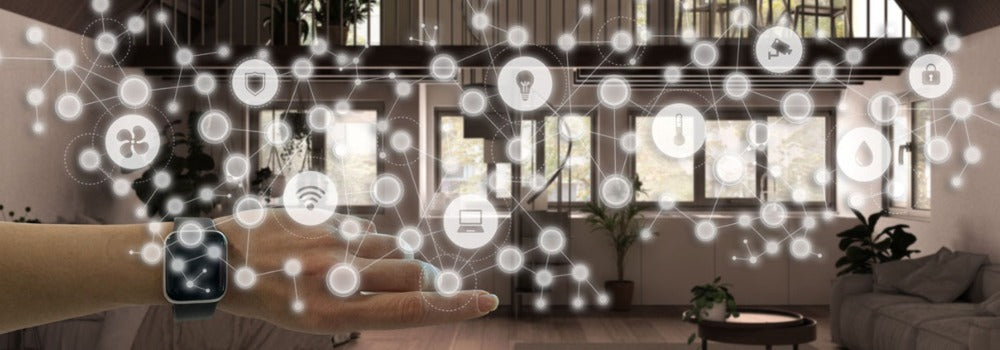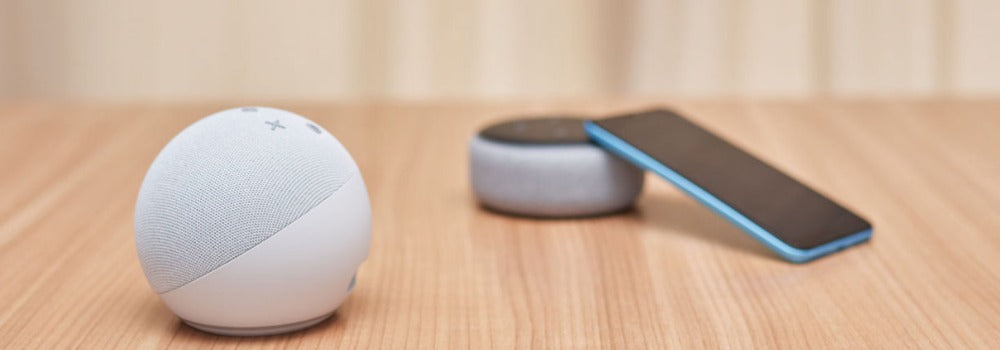
The Future of Home Automation
Home automation is evolving, and we have been witnessing it for quite some time. The technology we use to make our homes smart is rapidly advancing. With the introduction of new devices, software, and connectivity options, home automation is becoming more sophisticated and accessible. One of the latest advancements in this field is the Matter protocol.
Matter is a new smart home standard that aims to make it easier for devices to communicate with each other. In this blog post, we'll explore what Matter is, how it works, and what it means for the future of home automation.
What is Matter?
Matter is a smart home protocol that allows different devices to communicate with each other. It was developed by the Connectivity Standards Alliance, a group of leading technology companies including Apple, Google, and Amazon. The goal of Matter is to create a standard for smart home devices that is interoperable across different brands and platforms.
Matter aims to solve a major problem in the smart home industry: device compatibility. Currently, there are three main smart home platforms, being Apple HomeKit, Google Home and Amazon Alexa. You will see devices in the market with labels that show "Works with Alexa" and "Works with Apple HomeKit" on the box. Manufacturers that wish their product to 'work with' each of these platforms have to build-in the protocols for Apple HomeKit, Google Home and Amazon Alexa, separately, into their device. Even though devices may connect with the smart home controller by any combination of shared wireless and wired technologies, (such as Zigbee, Z-Wave, and Wi-Fi), the manufacturer will still have build-in the protocols to participate with each of the smart home platforms that they want their device to participate in, separately. At the end of the day, these standards (protocols) for each platform are not compatible with each other, which means that devices from one brand meant for one platform (Amazon Alexa), may not work with devices from another brand that is built specifically for another platform (Apple HomeKit). This can be frustrating for consumers who want to build a smart home using devices from different brands who specialise in making devices for a specific purpose. I.e you may love the motion sensors from Fibaro (Apple HomeKit, only) but would love to specifically use the Google Nest cameras (Google Home, only). These two devices cant be used in a single smart home ecosystem, without Matter, since they are both built for different platforms.
How Does Matter Work?
Matter uses a common language that allows different devices to communicate with each other. This language is based on existing standards, such as IP (Internet Protocol), Bluetooth Low Energy (BLE), and Wi-Fi. This means that Matter devices can work with each other, as well as with devices that use these existing standards.
Matter devices connect to a local network, such as Wi-Fi, and can communicate with each other using IP. This allows devices to send messages to each other, such as commands to turn on or off, without the need for a central hub. Matter also uses a secure authentication and encryption system to ensure that communications between devices are secure.

What are the Benefits of Matter?
Matter has several benefits for both consumers and device manufacturers. For consumers, Matter means that they can buy smart home devices from different brands and be confident that they will work together. This makes it easier to build a smart home without having to worry about compatibility issues.
For device manufacturers, Matter means that they can create devices that are compatible with a wide range of other devices. This reduces the cost and complexity of developing and testing new devices, as they only need to ensure compatibility with the Matter standard.
Matter also benefits the smart home industry as a whole. By creating a common standard, it encourages innovation and competition, as device manufacturers can focus on creating better devices rather than worrying about compatibility issues. This ultimately leads to better and more affordable smart home devices for consumers.
What Devices Will Support Matter?
Matter is still a new technology, and not all devices currently support it. However, many leading smart home device manufacturers have announced their support for Matter, including Amazon, Google, and Apple. This means that we can expect to see more and more devices supporting Matter in the near future.
Some of the devices that are expected to support Matter include smart speakers, thermostats, light bulbs, and door locks. In fact, some devices already support Matter, such as the new Amazon Echo and the Google Nest Hub.

How Will Matter Impact the Future of Home Automation?
Matter has the potential to revolutionise the smart home industry by making it easier for consumers to build a smart home using devices from different brands. It also has the potential to encourage innovation and competition, which ultimately benefits consumers.
In the future, we can expect to see more and more devices supporting Matter. This will make it easier for consumers to build a smart home that is truly interoperable and customisable to their specific needs. With Matter, the smart home industry is moving towards a more standardised and streamlined future.
Matter is a game-changer for the smart home industry. By creating a common standard, it solves the problem of device compatibility and encourages innovation and competition. While it may take some time for Matter to become widely adopted, we can expect to see more and more devices supporting this standard in the near future. As a home automation enthusiast, I am excited about the possibilities that Matter brings and can't wait to see how it transforms the smart home industry.